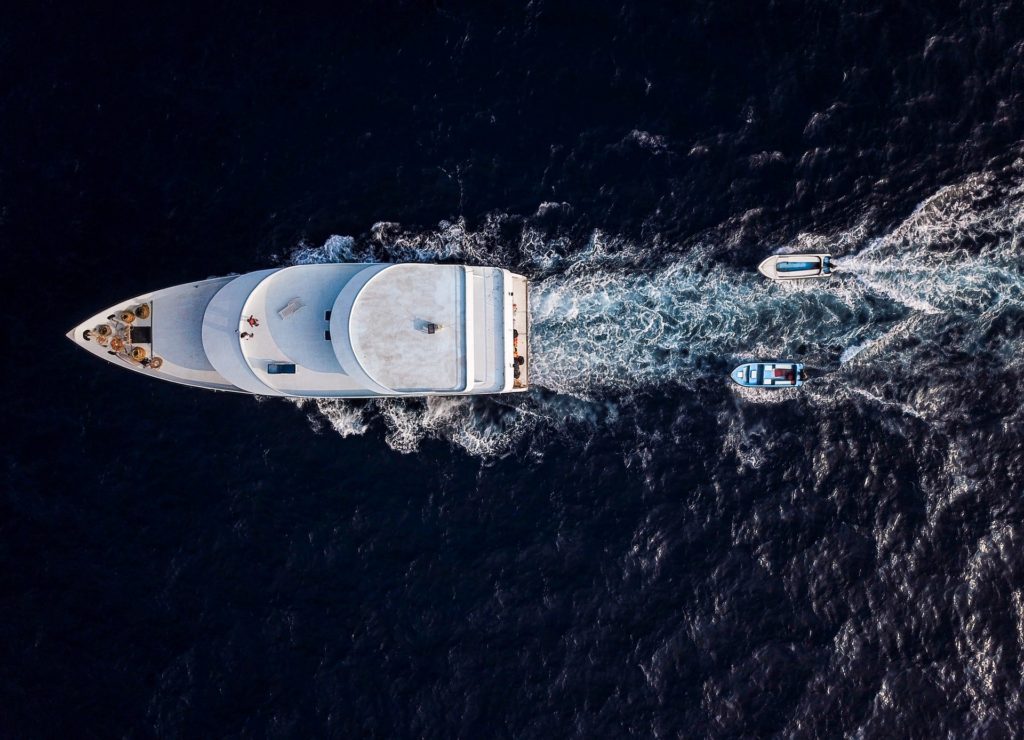
When people consider the dangers of boating, most think of running aground, being lost at sea, colliding with another vessel, or drowning. Very few consider being poisoned by carbon monoxide (CO). CO poisoning is not uncommon in houses, apartments, and other buildings, which is why CO detectors are largely required, but few people think CO poisoning will be a problem on a boat. While this may seem like a one-in-a-million accident, the truth is that CO poisoning on boats is incredibly common, and incredibly dangerous.
The Dangers of Carbon Monoxide
Carbon monoxide is a deadly gas. It has no color, taste, or smell, which means that in its pure form it is undetectable to humans. When it is used in buildings — as it is a common byproduct of heating systems, gas ovens, and other systems that burn gasoline, oil, or propane — it is often mixed with other gases, so that it has a detectable order. This is not always the case, however, and CO detectors should always be installed in buildings in order to prevent poisoning.
CO is deadly because when it is breathed into the lungs it displaces oxygen molecules in our bloodstream. Oxygen is key to keeping our body going, and every part of our body, from our brain to our heart to our muscles, needs oxygen to survive. If CO enters your lungs and displaces the oxygen, you can, essentially, suffer chemical asphyxiation, as oxygen will no longer be making it to your brain, heart, and other organs. Being exposed to CO for too long can easily result in death.
Symptoms of CO poisoning are similar to flu symptoms and include:
- Headaches
- Dizziness
- Nausea
- Vomiting
- Weakness
- Chest pains
- Confusion
If you notice these symptoms, either in yourself or in someone near you, immediately leave the area, whether that means getting out of the house, workplace, or even off the boat. CO, like all gases, “dissipates,” or weakens, in open air. The further you are from the source of the leak, the less likely you are to breathe in a dangerous amount of carbon monoxide.
How Carbon Monoxide Builds Up in Boats
A common source of CO is an engine, whether in a car, truck, or even boat. This is a particular problem with larger boats, such as houseboats. These boats often have engines and generators that vent “aft,” or toward the back of the boat, meaning anyone on the rear swim deck or water platform is at risk of breathing the CO in. The CO that builds up in these areas can be incredibly concentrated, and, according to the Centers for Disease Control and Prevention (CDC), can kill someone within seconds.
On top of that, if the boat is idling, as in staying still with the engine on, or traveling at low speeds, then the gas can begin to build in the cabin, aft deck, cockpit, and even in open areas. Wind and backdrafts can increase this buildup quickly, leading the boat to become a floating raft of carbon monoxide. As you can imagine, this can and does lead to passengers dying from the poison. On top of that, those who are not killed may pass out, fall into the water, and drown. Considering how dangerous CO is on a boat, how can you stay safe while enjoying the beautiful California waters?
Keeping Your Boat Safe
First and foremost, make sure that your boat is equipped with a working CO detector. These detectors will alarm you when CO begins to build up, allowing you to cut the engine and get away from the source of the gas leak. Since CO is so difficult to detect on your own, these devices are quite literally lifesavers. In addition to keeping a detector on board, there are a few other steps that you can take, including:
- Make sure all fuel-burning devices are properly maintained and installed
- Be educated, and educate others, on the signs of CO poisoning
- Keep exhaust outlets open and unblocked
- Stay away from the areas where the engines vent gas and exhaust
- Stay at least 20 feet away from any idling boat, as the exhaust from that boat could cause a CO buildup on yours
While maintaining your boat is your responsibility, if you are renting a boat from someone else, or enjoying a trip on a friend’s boat, then it is that person’s responsibility to keep you safe, especially from CO poisoning. If you have suffered carbon monoxide poisoning due to someone else’s negligence, call NordstrandBlack PC at (805) 962-2022 today. As skilled personal injury attorneys, we can help you get the compensation you deserve.